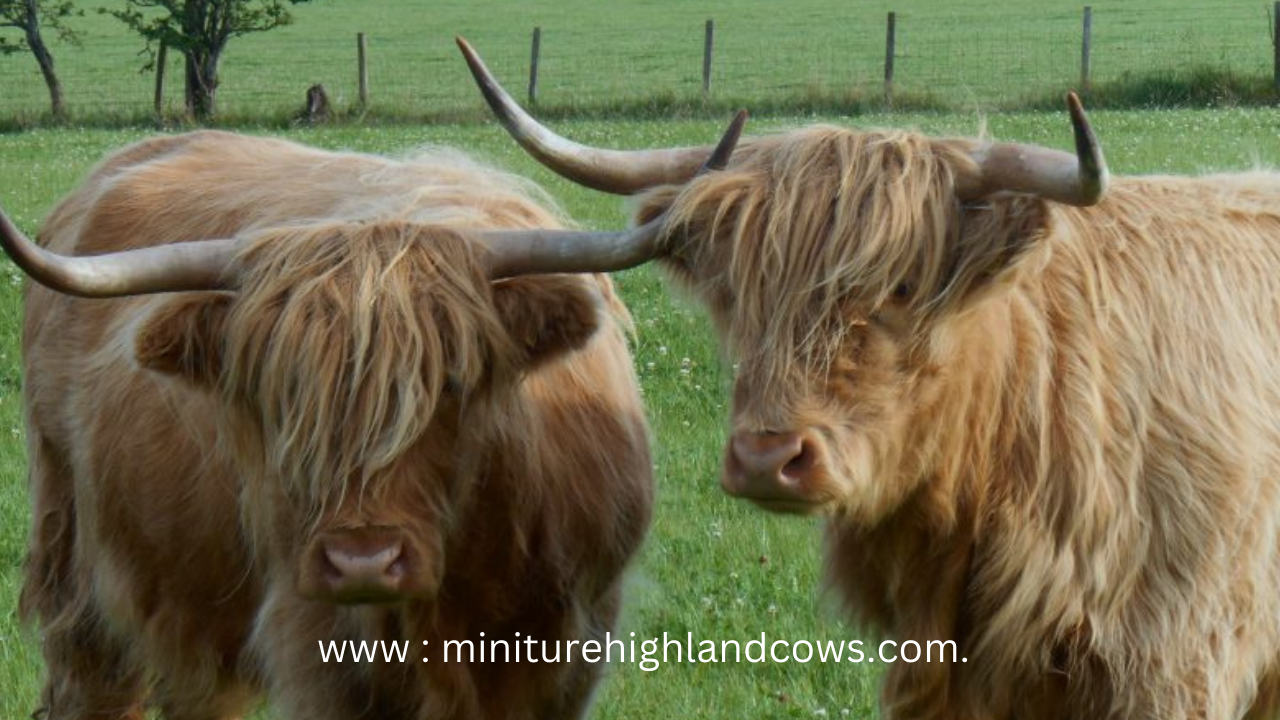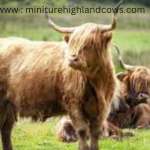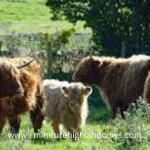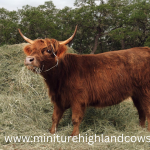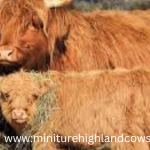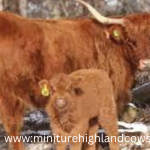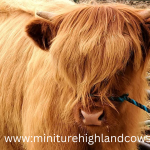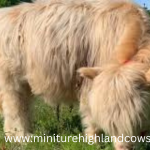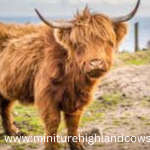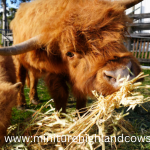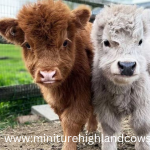Miniature Highland cows are, in fact, the scaled-down version of the now-famous Highland cattle, characterized by a rugged appearance and calm temperament. Their charm and hardiness bring them closer to the look and feel of the classical Highland cattle but with more manageable size, making the miniature Highland cows easy animals to handle and care for, which is why these animals have become so famous as companion animals and animals raised for livestock. In relation to the lifespan and health needs of miniature Highland cows, it is essential that anyone interested in keeping these animals understands how the quality of care can impact both their quality of life and longevity.
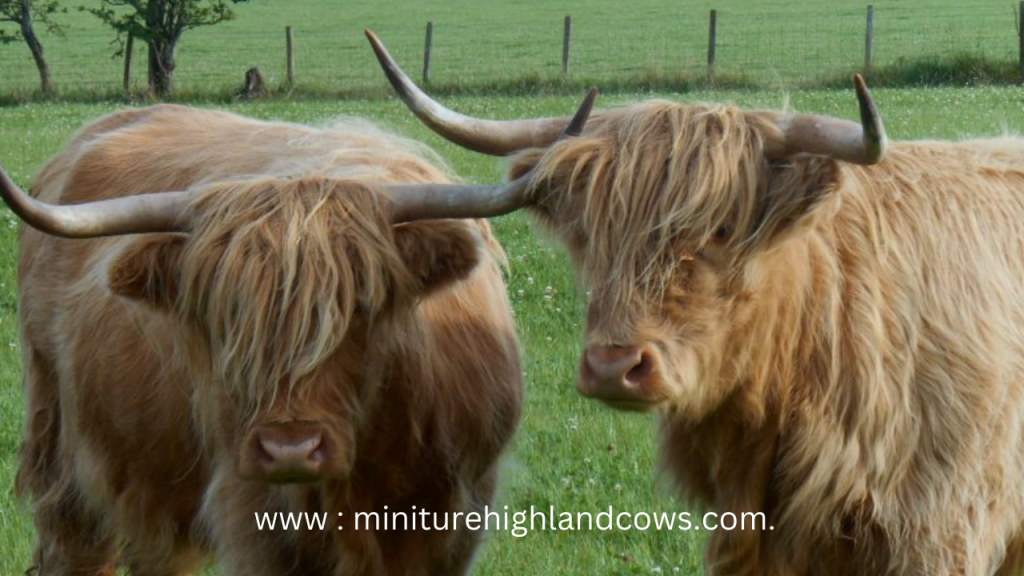
Teacup miniature highland cow lifespan
Teacup miniature Highland cows are quite small with their shaggy coats. Generally, if cared for correctly, the life span of these cattle would be 12 to 15 years. Life expectancy is the same for this variety as the average miniature Highland cow. Nevertheless, with their small stature comes, at times, an unusual health problem brought on due to selective breeding. Hence, to enjoy long-term healthy lives, one has to be careful while selecting a reputed breeder, putting focus on the health issues of the breeders as well.
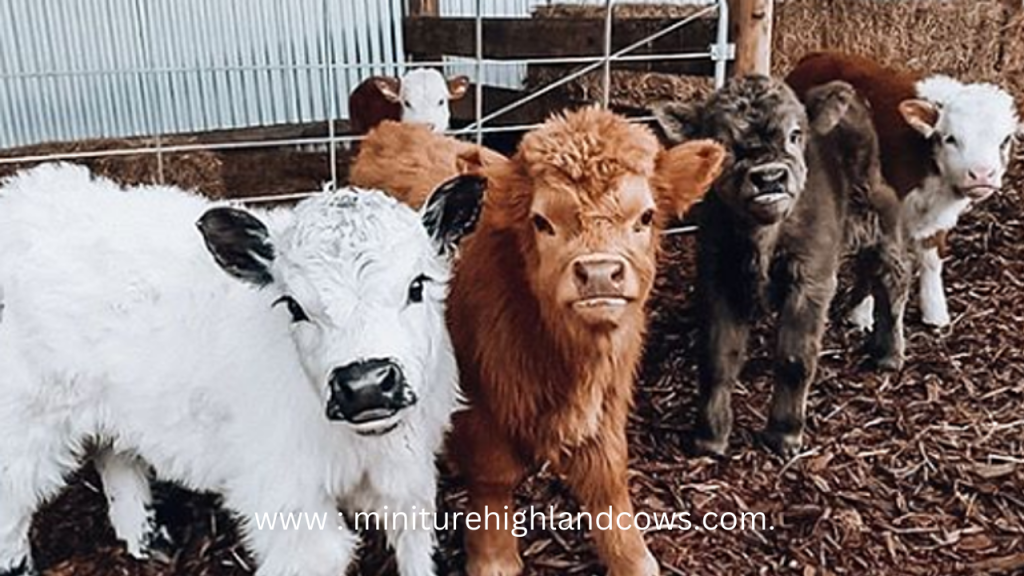
Grass and hay form the basis of their high-fiber diet, but it’s how much is consumed that needs to be monitored: avoiding obesity due to strained joints and more besides. Having ample room for wandering and adequate shelter all serve the overall purposes.
Routine veterinary care, including vaccinations and parasite management, is important, as teacup miniature Highland cows may be prone to specific issues like joint problems and digestive sensitivities. Social animals by nature, they thrive best when kept with other livestock, enjoying companionship that reduces stress and promotes happiness.
In a good environment with the attention of proper care, teacup miniature Highland cows will have a long and healthy life that will bring happiness and personality to their keepers.
Teacup mini cow
Teacup mini cows: These are small, rather cute variants of the major cattle and are bred more specifically for being smaller in size than ordinary cows. Thus, such miniature cows range from miniature Highland to Hereford breed, with typically 36 to 42 inches in height or 200 to 700 pounds in weight on average, which is even much smaller and easier compared to a standard cow’s size.
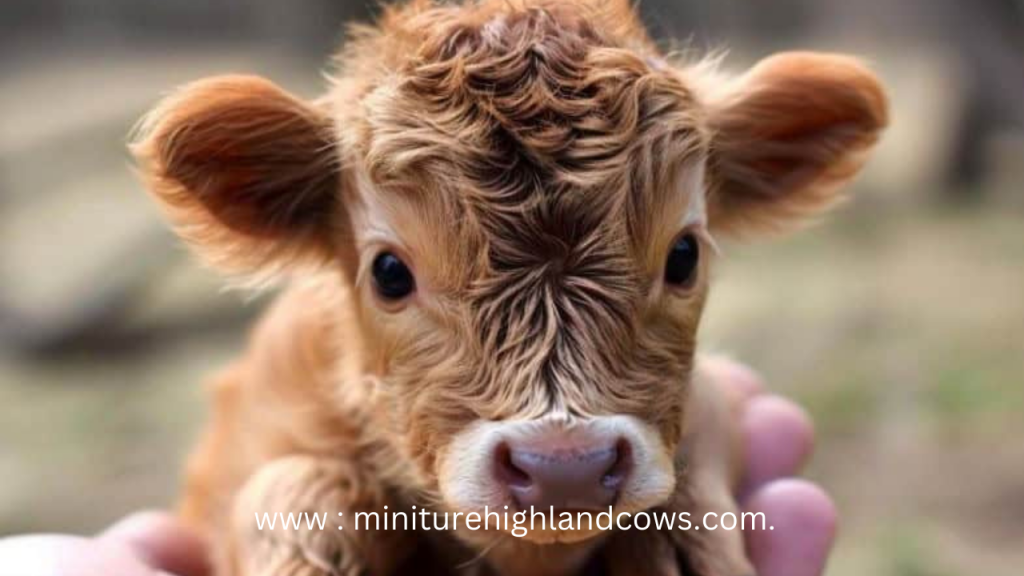
Lifespan and Care
Teacup mini cows normally live between 12 to 20 years given proper care, just like other standard miniature cows. They require proper diet, ample space, and veterinary care to keep them healthy and fit. They are social animals, prefer living together or with other companions, minimizing stress and loneliness.
Why People Love Them
Miniature cows are in high demand because of their small size, friendly nature, and irresistible appearance. Hobby farmers, families, and animal lovers all find them the best companion animals as they can even be somewhat house-trained. They often serve as “therapy animals” because of their amiable nature. They require much less in terms of feeding, housing, and overall care than larger cattle.
Suitable Environment
These miniature cows will require ample grazing and mobility space and also sufficient shelters to protect them from intense weather. Although they are quite small, they still retain the same fundamental needs like larger cows, such as regular hoof care, parasites control, and mostly an intake of hay and grass.
For hobby farming, small-scale milk production, or companionship, teacup mini cows bring a unique blend of farm charm and companionship to make them a special addition for whoever has the space and commitment to care for them.
Lifespan of Miniature Highland Cows
Miniature Highland cows generally live from 12 to 15 years, although some may live into their early twenties with proper care and excellent conditions. This lifespan is quite comparable to that of regular Highland cattle, which are also known for their longevity and hardiness. Their extended life expectancy in the livestock world can be attributed to several factors, including their robust genetics, adaptation to harsh climates, and relatively low susceptibility to certain diseases that affect other cattle breeds.
Factors Influencing Lifespan
Several factors can influence the life span of miniature Highland cows. These factors include genetics, diet, living conditions, and healthcare. Let’s take a closer look at each of these factors.
- Genetics and Breeding: Miniature Highland cows are very much similar to the regular Highland breed. They carry strong, hardy genetics. These animals come from Scottish Highland cattle, bred specifically to thrive in the rough, cold climates of Scotland’s Highlands. Throughout the many generations, these cows got thick coats and a very strong immune system, so there is an obvious advantage here over many other breeds. However, artificial downsizing of them has its own problems since such breeds can be genetically prone to diseases at times if their size is drastically downsized artificially. In most cases, though, experienced breeders prefer to use a healthy genetic line in a cow so that the natural longevity of the animal would not be compromised.
- Nutrition. Nutrition has a direct effect on the health and lifespan of the miniature Highland cows. Since these are ruminants, they spend most of their time feeding on grasses and hay. Being efficient processors of roughage, these cows do not require diets rich in proteins or grains that may otherwise cause digestive issues or even obesity. Providing them with enough access to good pasture or hay will ensure that they get the fiber and nutrients they need. In addition, supplemental minerals and vitamins may be provided to boost their immune system and prevent deficiencies. Owners must not overfeed, since obesity can shorten a cow’s lifespan by putting added stress on their joints and organs.
- Housing: Miniature Highlands, just like their full-sized siblings, are outdoor animals that require freedom to graze and roam outdoors. They are very hardy for the cold because of their heavy coats, but they do require proper sheltering from heavy rains and high winds. Besides, appropriate land for grazing and exercise should also be provided in addition to their overall physiological as well as psychological condition. Overcrowding stresses animals and may easily make way for diseases to propagate rapidly. So, miniature Highland cows will be fit if there is enough roaming ground.
- Healthcare and Regular Maintenance: For general health conditions of miniatures Highland cows, a good veterinary care should often check on them. Routine check-ups help to identify potential problems and rectify them in early life. Routine measures used include vaccination, parasite control, and dental check. Hoof troubles are the other problem as cows spending too much time on a wet or muddy ground start to suffer so frequent trimming is needed to protect them from infection and disability. Miniature Highland cows are generally hardy, but some of them are prone to certain conditions like joint conditions that may affect the life expectancy if checked upon in time.
Miniature Highland cows are one of the best options if you prefer small farms or having this animal as your pet due to their woolly coat and relatively short height. Here is a quick FAQs on lifespan and associated care:
Miniature Highland Cow Lifespan-FAQ
- How long does a miniature Highland cow live on average?
- Miniature Highland cows typically live between 12 to 15 years, but with excellent care, some can live longer, even into their early twenties.
2. What factors affect their lifespan?
- Genetics: Good breeding practices are essential. Breeding purely for smaller size can sometimes introduce genetic issues, so reputable breeders prioritize health.
- Diet: Miniature Highland cows are meant to be fed with diets that consist of a high percentage of grasses and hay. Their diet must consist of high fiber levels to ensure they are kept fit and not obese.
- Environment: Miniature Highland cows thrive in open spaces where they can graze and roam. They require shelter, especially during extreme climatic conditions, such as sun exposure in warmer regions.
- Veterinary Care: Regular check-ups, vaccinations, and parasite control are just some of the essential things that help them live a healthy life.
3. Can they live more than 15 years?
- Yes, good care, nutrition, and stress-free surroundings may result in some miniature Highland cows living longer than 15 years and even reaching their early twenties.
**4. What common health issues are found in miniature Highland cows?
- Obesity: Due to their small size, they tend to get obese easily, which can cause joint problems.
- Joint Problems: They tend to suffer from joint stress from obesity or genetics, and weight management and exercise help.
- Digestive Issues: Too much grain overfeeding leads to digestive problems since these cows do very well on a diet fed on grass only.
5. Do they need a special diet because they are miniatures?
-Not really; they should be fed the same diet as any Highland cow made up of high fiber pasturing grass and hay in smaller portions, which then can lead to overgrain or high feeding conditions.
**6. Their life span compared to normal Highland cows?
- Miniature Highland cows tend to live as long as regular Highland cows. Both are typically hardy and long-lived, living well beyond fifteen years with proper care.
- Of course, the healthy life of an animal depends on regular health check-ups, routine hoof trimming, a balanced diet, clean water supply, and proper shelter. A peaceful environment and social interaction will reduce stress and enhance wellbeing.
**8. Do miniature Highland cows have higher chances of health issues as compared to full-sized Highland cows?
- No, but for the sake of use for size, they are highly vulnerable to genetic defects that might cause problems of health issues. The health risks is what an ideal breeder will try to focus on.
9. Do social relationships have an influence on the life span?
By nature, the miniature Highland cow is an animal meant to be a socializer-it can function well among others in stock or animals. Socializing always gives lesser stress. Stress automatically causes health complications and diminishes longevity in a great manner.
10. Are miniature Highland cows more pet-like?
Yes, lots of people raise them as pets or therapy animals, since they are friendly and calm. They are also ideal for small farms as well as for companions if they have sufficient space and care.
Miniature Highland cows live a long, healthy life with proper care. They are docile and love their owners.
